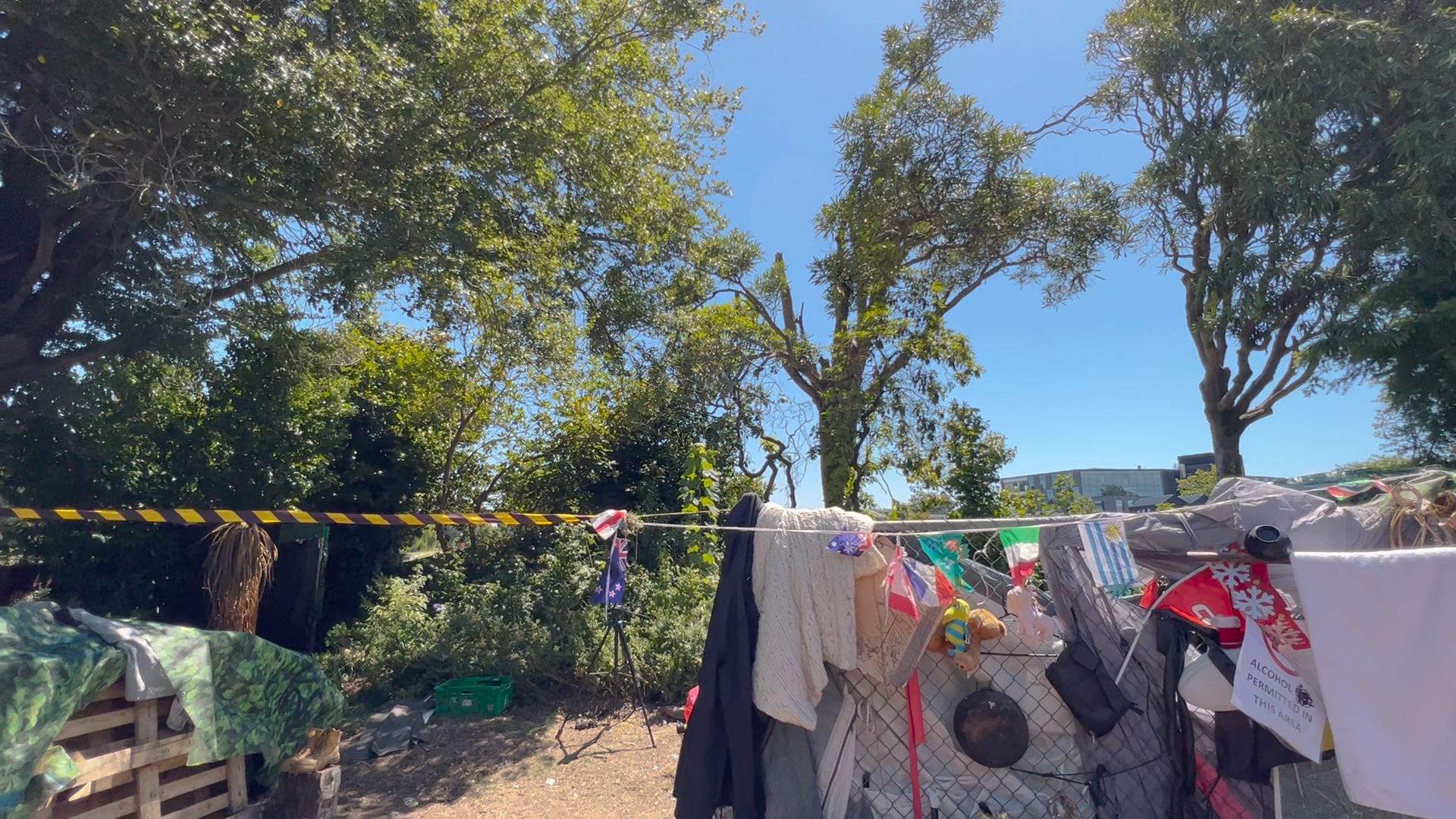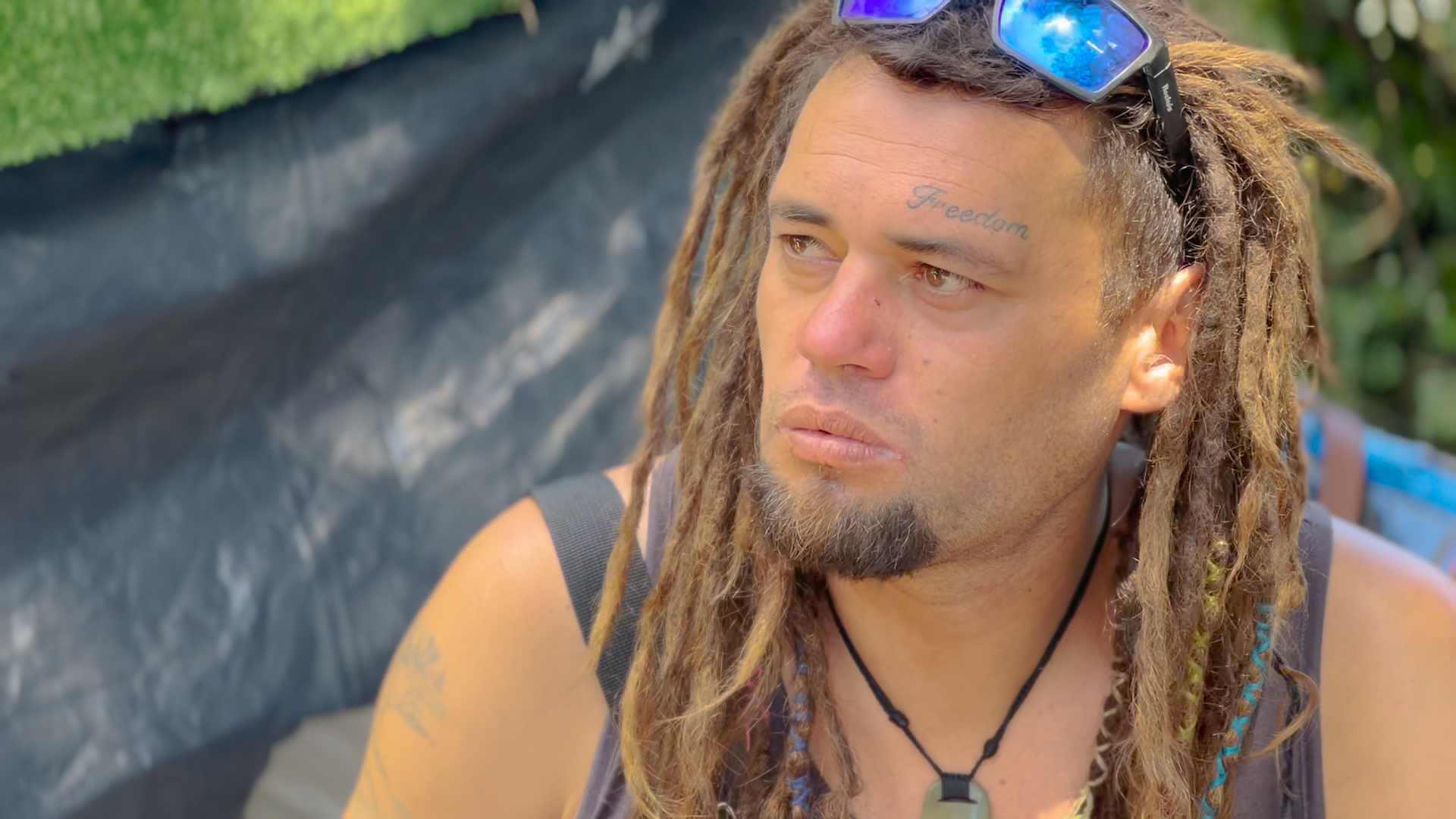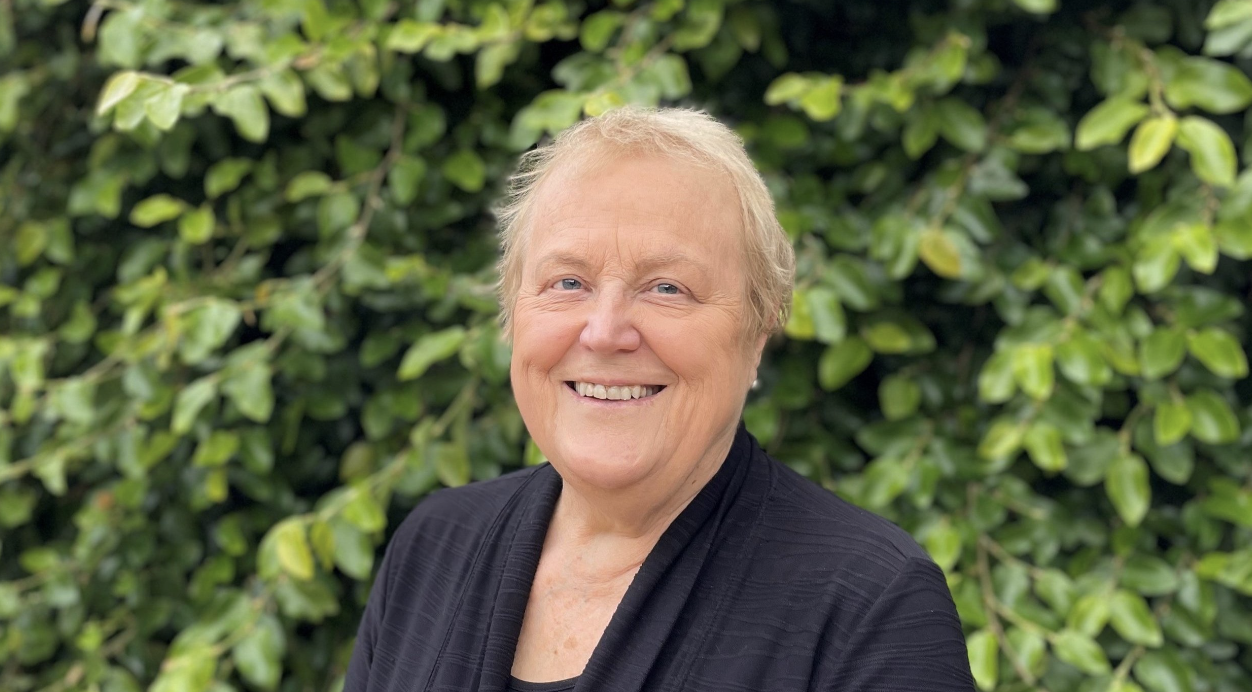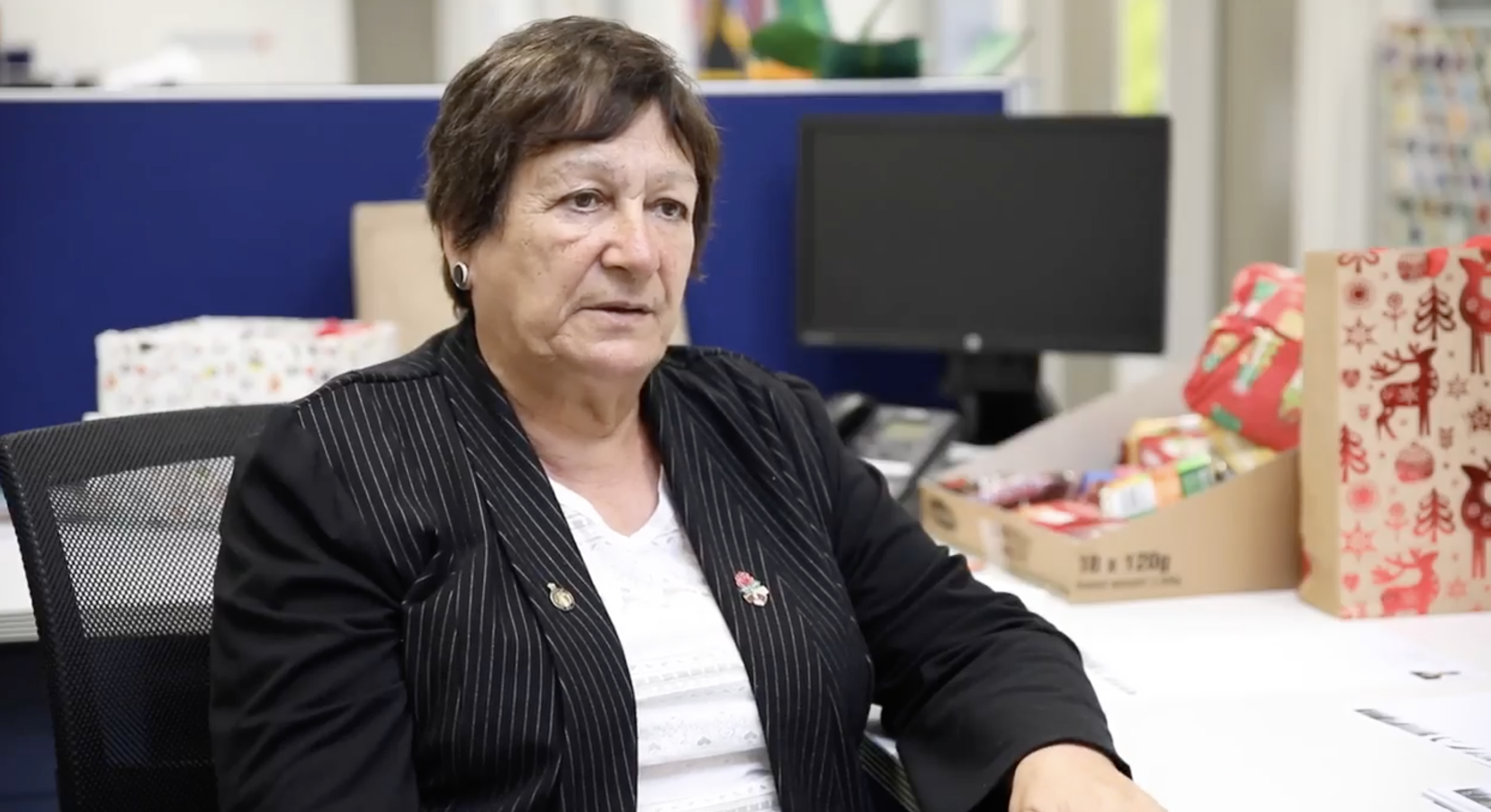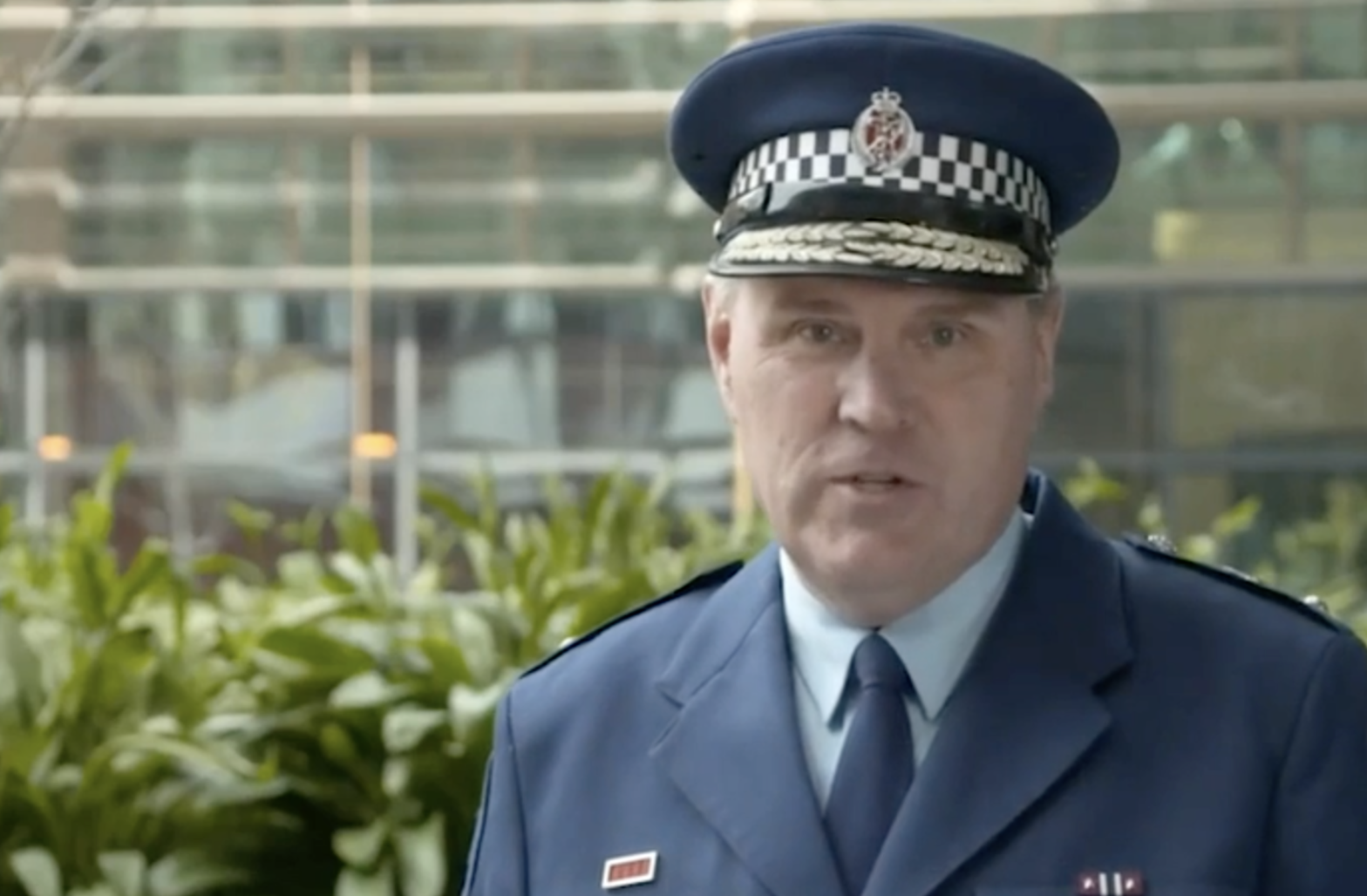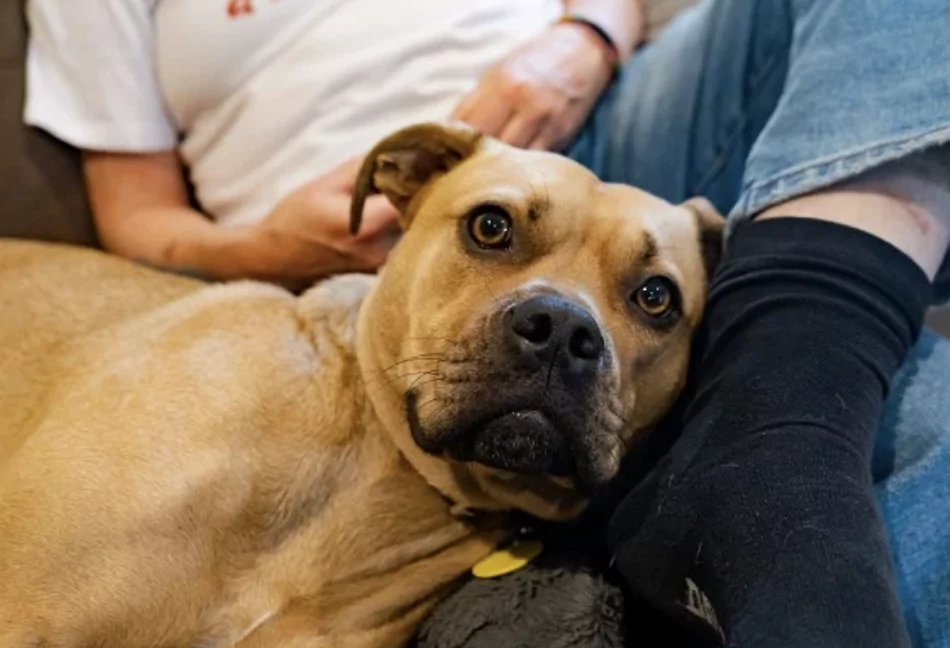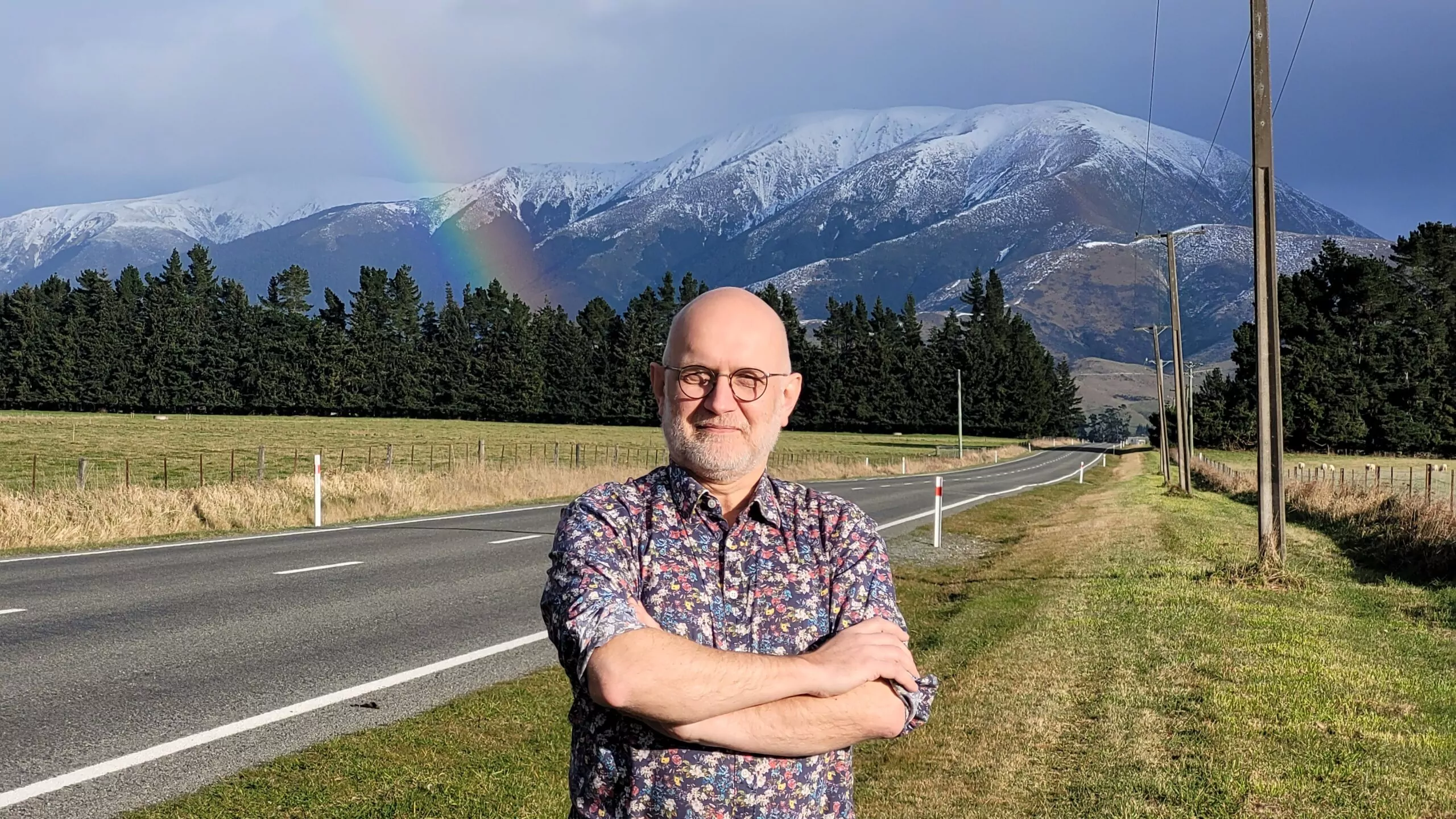Photo: Chris Lynch
Are Christchurch’s social service agencies doing enough to support some of the city’s homeless?
Chris Lynch Media went searching for answers, after producing a video highlighting the ongoing mental health and addiction issues experienced by those living rough in a vacant section in Christchrch’s central city.
Camper Dion ran away from the North Island after his sister was murdered by her son-in-law. Most of his North Island family members were in the Black Power or Mongrel Mob, which he described as “devastating.” He said he couldn’t cope seeing his younger family members being encouraged by adults to join the gangs.
Dion said he enjoys living on the site.
Dion said he felt safe at the site and wasn’t judged, particularly given the section was surrounded by high bushes. Visitor Nick told Chris Lynch he was on a methadone programme to help his drug addiction.
He spoke openly about his violent criminal past, but was proud that had not been to prison in more than ten years. He travelled from Westport to Christchurch trying to see his newborn baby, but his daughter’s mother refused access.
Nick said not being able to see his baby was hurtful and despite getting an expensive lawyer, he didn’t hold out much hope. He wanted to tell his story, because “everyone is going through their own personal hell.” Nick said some of the people staying at the site suffered alcohol abuse, and the environment could get “dangerous” at night.
Neighbour Caroline told Chris Lynch residents in the area felt unsafe and urged the council to step in and do something. She was worried someone was going to get killed given the site was a “fire risk.”
The council sent Caroline an email saying when officers visited the site in December, they did not find any sanitary issues, despite there being no water, toilet or shower facilities.
What is the Council doing?
A council spokeswoman said “at the time of the council officers’ inspection of the site, they were investigating for any breaches to the Health Act to determine if there were any statutory public health nuisance breaches by way of odour, flies, vermin or faeces etc. “When we visited potable water was available on the site.”
Further to this investigation, Council also reviewed whether the structures on site can be defined as a building under the Building Act 2004.
“It has been determined that yes they are defined as a building and Council has now commenced an investigation relating to unsanitary buildings under the Building Act 2004.”
When asked if the council was concerned that the site was a “magnet for crime” the spokesperson said current legislation did not specifically address derelict or abandoned properties and the associated issues that cause concern to neighbours and communities.
Drug-related concerns would be a matter for the New Zealand police to investigate.”
The Council spokeswoman said “as a general rule, the responsibility to maintain the condition of a property is that of the property owner; there is no duty on an owner to maintain a building or property to a specific standard.
Requiring a property owner to fence off their property in this instance is not something that Council can enforce.” The site was visited regularly by Christchurch City Mission outreach workers.
▶️ WATCH: Christchurch Mayor Phil Mauger said help for the city’s homeless was on the way.
Christchurch Mayor Phil Mauger said in several weeks the new Oxford Terrace Baptist three-story Church was opening and would be offering wraparound services for those most in need.
Christchurch City Missioner Corinne Haines
City Missioner said there was plenty of support available
Christchurch City Missioner Corrine Haines confirmed that outreach social workers visited the site on a regular basis.
“One of our workers speaks to one of the men featured in the video nearly every day. The landlord who owns the property has given permission for these people to use the land on the condition that they keep it tidy, which they do.”
Haines said social workers said the homeless feel safe there and took pride in their environment.
“We offer our services to them but they choose not to engage, so all we can do is continue to check on them and support them in any way we can.
We can only encourage them to use our services, but we cannot make them use our services. But we would be there for them if they were to come to us. We have our emergency accommodation, we have counsellors and social workers and we have day programmes that they could attend.”
Advocate Brenda Lowe-Johnson said Collective for the Homeless staff would visit the site next week
Community advocate to visit the site next week
Respected community advocate Brenda Lowe-Johnson who founded the charity Collective for the Homeless said she’s visited the site several times.
“We found the boys were doing well there. They weren’t doing any harm. In fact, it’s real cosy for them and they’re not on the streets. It would be sad if bureaucracy moves them out” she said.
“However, we haven’t visited them for a while, so we will visit them next week. We may team up with Housing First and help the boys with better accommodation and employment.”
The Collective for the Homeless has been operating since July 2015. Since its formation, it has helped nearly 900 into housing Brenda said.
Canterbury Metro Area Commander Superintendent Lane Todd said police work alongside partner agencies to better understand homelessness.
Can Christchurch police help?
Canterbury Police Metro Area Commander Superintendent Lane Todd said “homelessness is a complex issue that continues to come to police attention in many of our towns and cities.
We see ebbs and flows in terms of the numbers, ages and locations and during summer it often becomes more visible and in turn can result in more calls to police.”
Todd said “rough sleeping, begging or being homeless are in themselves not criminal offences, but police are called from time to time to deal with issues around matters involving public disorder or complaints about antisocial behaviour.”
He said “many of those dealt with are suffering a wide range of welfare issues and police will seek to use alternative resolutions and referrals to partner agencies to assist with specialist help.
We aim to engage, educate, encourage and learn from all interactions. On occasions, we will exhaust all options and have no alternative but to take enforcement action.”
Todd said “police are continuing to work alongside and have meetings with our partner agencies to better understand the issues and to find long-term solutions for homelessness. We are supportive of the collective work being done in the community to support and assist homeless families and individuals.”
Associate Minister of Housing / Homelessness Marama Davidson said locally head responses to homeless issues were most effective in identifying people’s unique needs
Minister for Homelessness issues responds
In the latest Government’s 64-page action plan to address homelessness issues in New Zealand, Christchurch wasn’t featured at all.
However, Associate Minister of Housing / Homelessness Marama Davidson watched the video produced by Chris Lynch Media.
“My heart goes out to the community of people featured in your article. It is unacceptable that anyone is sleeping rough and doesn’t have a place where they feel safe and can put down roots.
Too many New Zealanders are currently experiencing homelessness and we are working hard to change that.”
Davidson said “we know that supporting people out of homelessness means providing more than just a roof.
People need support that responds flexibly, quickly and appropriately to their needs. Without the proper support, individuals, families and whānau can cycle in an out of homelessness.”
Davidson said it was “really positive to hear from Mayor Phill Mauger that support services on the ground are aware and taking steps to work closely with this group of people.
Locally-led responses are the most effective at identifying people’s unique needs and working across agencies and communities to put those needs at the centre of the support that is offered.
The drivers of homelessness are complex and the right support and healing for people who are experiencing the detrimental effects of being homeless takes time and building good relationships.”
Davidson said in her delegation as Associate Minister for Housing (Homelessness) her focus was firmly on delivering the Homelessness Action Plan and making sure the Government takes a joined-up and locally-led approach to “interrupt and stop homelessness from occurring.”
▶️ Watch full report: Some of Christchurch’s homeless have suffered unimaginable trauma [CONTENT WARNING]
Alcohol and Drug Helpline – 0800 787 797 or online chat.
Shine – 0508 744 633 confidential domestic abuse helpline.
Women’s Refuge Crisisline – 0800 733 843 (0800 REFUGE) (for women living with violence, or in fear, in their relationship or family).
Free peer support services for people experiencing mental illness or those supporting them:
Canterbury and West Coast – 03 379 8415 / 0800 899 276 (1pm to midnight, seven nights).
Government emergency housing website
Christchurch City Mission – Adult Alcohol and other Drugs Service Phone: 365 0635 Email: [email protected]
Depression Helpline Phone – 0800 111 757 Text 4202
He Waka Tapu – 0800 439252 – Maori Health and Social Service programme increasing the health and wellbeing of Whanau by reducing violence and abusive behaviour.
